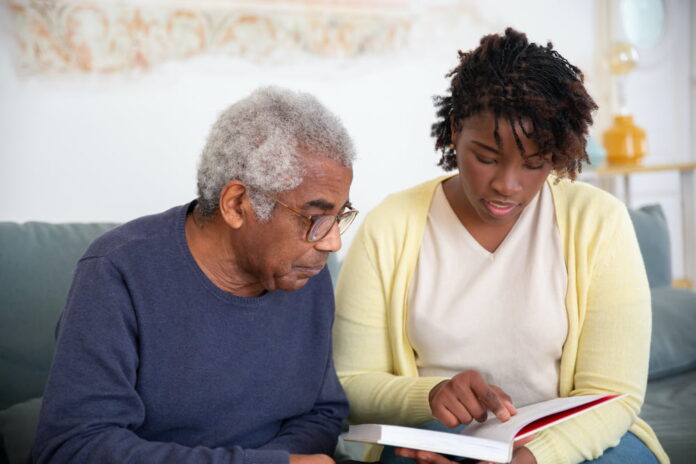Did you know that, according to a study by the Kaiser Family Foundation, in-home healthcare professionals earn an average of just $11 per hour? Needless to say—it’s high time these hardworking individuals get more support and better pay packages!
The Underrated Heroes
In-home healthcare professionals are often the unsung heroes in our society–they provide essential care for our loved ones when we can’t be there ourselves. But believe it or not, they’re often underpaid and overworked. This is why it’s true that they deserve better working conditions and compensation.
When you think about it, ensuring they have proper support should be a #1 priority for those who rely on their services; after all, taking care of our loved ones is priceless! Some were surprised when they found out how little these dedicated workers earn; but as the saying goes: knowledge is power–and it’s time we take action.
Backing Up Our Claims
While we don’t need studies or news sources to tell us that improving pay and working conditions for these professionals is crucial—just knowing how much they contribute to families’ well-being should be enough—it never hurts to have some data handy.
For example: research from Home Health Care News shows that higher pay rates can reduce staff turnover by up to 50%. Now that’s something worth considering!
EVs – A Practical Solution?
Can you imagine working long hours, traveling far distances, and taking care of people in need every single day—all while dealing with the financial burdens of high gas prices and vehicle maintenance? Well, that’s the reality for many in-home healthcare professionals.
They go above and beyond for their patients; but when you think about it, they often face physically and mentally taxing challenges. So how can we make their lives a little bit easier?
Believe it or not: electric vehicle subsidies! By offering incentives for these essential workers to transition to electric vehicles, we can help them save money on gas and maintenance costs. And this is why it’s true that such measures would improve their overall quality of life—not to mention reduce emissions too!
Doing Good for All
As the saying goes: “What goes around comes around,” right? With these subsidies in place hardworking in-home healthcare professionals get a much-needed break. Meanwhile–patients continue receiving top-quality care from happier caregivers.
It’s what’s often not talked about but is at the end of the day truly a win-win situation! Some were even surprised when they realized how much of an impact this change could have (especially in the long run).
It’s Time for Change
What’s often not talked about are the challenges faced by in-home healthcare workers every day; yet despite this lack of recognition—or what was a total surprise—their dedication remains unwavering. So let’s do our part: spread awareness of their value and work towards driving change so these incredible caregivers can receive the support and compensation they truly deserve.
Read Also
- Transforming Patient Care with Professional Healthcare Transcription ServicesIn today’s fast-paced healthcare environment, the need for precise and timely documentation cannot be overstated. Accurate documentation is not merely an ancillary task; it is a core element of delivering high-quality patient care. The ability to maintain compliance with regulations, enhance operational efficiency, and ensure the integrity of patient records has never been more critical.… Read more: Transforming Patient Care with Professional Healthcare Transcription Services
- Essential Steps to Launch Your Own Optometry PracticeLaunching your own optometry practice can be a thrilling and fulfilling journey. However, it requires careful planning, dedication, and an understanding of what it takes to succeed. With the growth in demand for eye care, more and more individuals are seeking to start their own practices. But how do you get there? This guide walks… Read more: Essential Steps to Launch Your Own Optometry Practice
- Compounding Pharmacy: Personalized Medication SolutionsA compounding pharmacy plays a vital role in modern healthcare by providing customized medications tailored to the specific needs of individual patients. Unlike mass-produced drugs manufactured by pharmaceutical companies, compounded medications are prepared by licensed pharmacists who carefully combine, adjust, or modify ingredients to create a formulation that best suits a patient’s unique medical requirements.… Read more: Compounding Pharmacy: Personalized Medication Solutions
- The Best Business Decision a Surgeon Ever Made: Ordering a Medical Equipment AppraisalMost surgeons don’t go into medicine because they love spreadsheets, valuations, or negotiating buy-ins. They go into medicine because they want to operate, treat patients, and build something meaningful over time. For one surgeon, that mindset worked perfectly, until the day another surgeon decided to buy into his practice. That moment exposed a problem he… Read more: The Best Business Decision a Surgeon Ever Made: Ordering a Medical Equipment Appraisal
- Creative Approaches to Alleviating Healthcare Staff ShortagesHospitals and clinics are facing staff shortages, which makes it harder to take care of patients well. Finding simple and useful solutions is very important. Easy changes like flexible work hours, good training, and chances to grow can help staff stay happy. Technology, like online doctor visits and helpful tools, can make work easier. Smart… Read more: Creative Approaches to Alleviating Healthcare Staff Shortages
- Understanding the Role of Sterilizers in Healthcare FacilitiesHave you ever wondered how hospitals keep their equipment safe enough to use on dozens of patients every day? Most people never think about what happens behind the scenes, yet these hidden steps play a huge role in patient safety. Sterilizers are part of that system, working quietly to remove harmful germs before any instrument… Read more: Understanding the Role of Sterilizers in Healthcare Facilities







